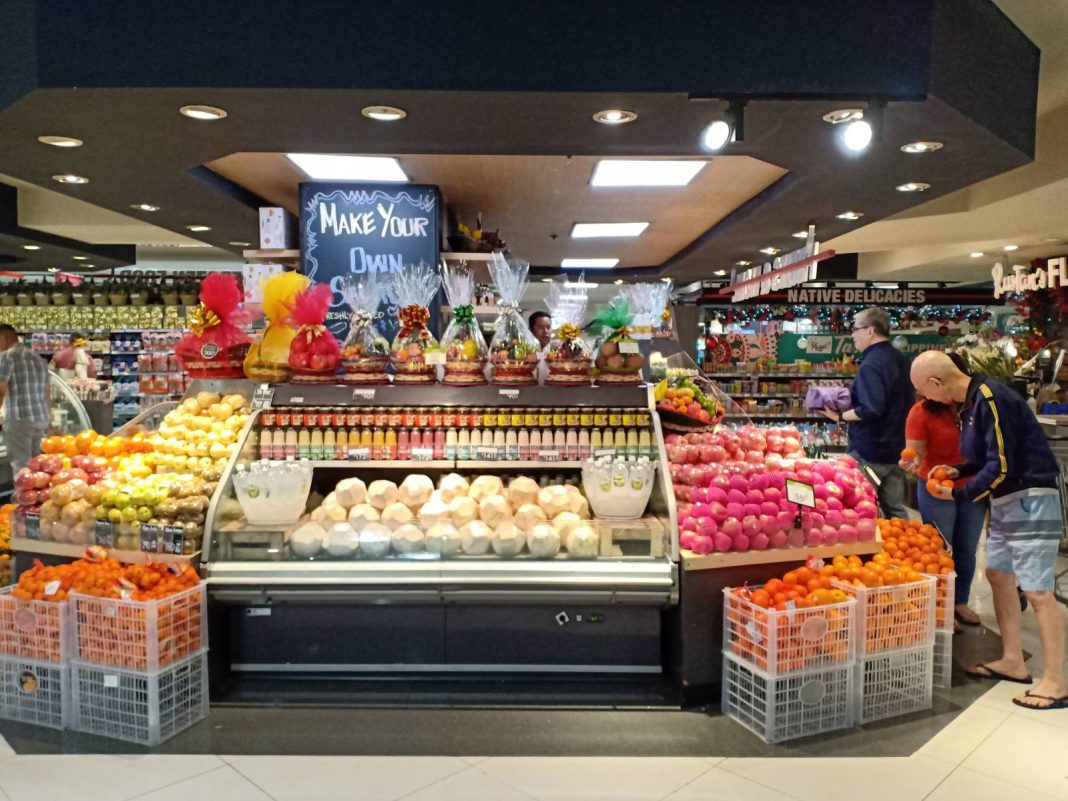By Alithea De Jesus
The continuous flow of food from the country’s farms to consumers that was the result of the ongoing reforms in the farm sector initiated by the Department of Agriculture (DA) on the watch of Secretary William Dar is “one of the brightest spots” in the government’s response to the coronavirus pandemic.
Finance Secretary Carlos Dominguez III said that on top of ensuring the stable supply of food amid the coronavirus disease 2019 (COVID-19) contagion, the DA, under Dar’s able leadership, has also kept the African swine fever at bay and the outbreak of avian influenza or bird flu controlled and eliminated, Dominguez said.
“With his capable and systematic handling of these and other significant issues, we face the COVID-19 pandemic with renewed strength on the food security front,” said Dominguez during the event marking the second anniversary of Dar in public service and his first year as a member of the Cabinet of President Duterte.
“We are fortunate that when the pandemic hit our country, some of the reforms Secretary Dar introduced had already taken root. Much of these measures relate to the building of productivity and enhancing the resiliency of our agriculture sector,” added Dominguez, who was an agriculture secretary himself in the 1980s in the administration of the late President Corazon Aquino.
After lauding Dar for his accomplishments, Dominguez challenged him and the DA to fulfill a 2-percent annual growth target for the agriculture sector to keep it ahead of the country’s population expansion rate, which was estimated at 1.4 percent in 2019 by the Philippine Statistics Authority (PSA).
“The steady growth of our agriculture sector is crucial to achieving stable food prices for all Filipinos,” Dominguez said.
Dominguez noted that despite some weaknesses in the logistic system and the rush of, some local government units (LGUs) to seal borders during the imposition of community quarantine last March in various parts of the country, no food riots and hoarding of supplies have broken out.

“The continuous flow of food from our farms to our consumers is one of the brightest spots in our response to this pandemic,” he said.
Dominguez said the Department of Finance (DOF) is proud to have worked with the DA in ensuring access to affordable food by securing Vietnam’s commitment to continue exporting rice to the Philippines during the pandemic.
This was despite Vietnam’s initial declaration of imposing export restrictions after its farms suffered a prolonged drought.
Despite some price fluctuations reflecting increased logistics costs, the DA has generally kept food prices generally stable, which was one of the main reasons inflation has remained low amid the pandemic-induced health and economic crisis, Dominguez said.
He cited the “Plant, Plant, Plant” program spearheaded by Dar as a key factor in further reinforcing the nation’s food security, as this would help boost yields and improve distribution systems from farms to consumers.
To ensure that there would be no disruptions in food production in the future, Dominguez suggested to Dar five ways to guarantee the adequate supply of the most basic crops that Filipinos need.
These five measures are: 1) extending productivity gains in the rice sector to other plantation crops, particularly sugar; 2) digitalizing agricultural systems; 3) expanding access to digital marketing to boost consumer spending; 4) mechanizing farm production; and 5) improving the DA’s efficiency in program delivery.
Dominguez pointed out that archaic trade restrictions, protectionism and a 70-year old incentive-less production sharing mechanism designed in the 1950s yet has embedded inefficiencies in sugar production to the detriment of Filipino consumers.
“We also need to study ways to improve the welfare of sugar workers, small landholders, planters, millers, and other domestic industries without restraining growth in other equally important sectors of our society, such as food processing,” he said.
The need to digitalize agricultural systems was highlighted by the mobility restrictions during the lockdowns, which led to spontaneous responses to directly link farmers to consumers, Dominguez said.
He said digitalization will reduce the middlemen, processes and wastes in the farm system, while adding value and quality to food, and incomes for farmers and agri-entrepreneurs.
Digital technologies will likewise help farmers predict weather patterns, and identify climate-determined comparative advantages in terms of crops, Dominguez said
Digital marketing, on the other hand, will help boost consumer spending as it allows people to access fresh produce without having to crowd public markets, and will provide more business to the transport sector in terms of providing delivery services, he said.
Dominguez said that farm mechanization, as Dar correctly pointed out, is the way to make Philippine agriculture competitive, given that this would, among others, reduce spillage and spoilage that jack up the prices of agricultural produce.
He said this is why mechanization is the largest component of the Rice Competitiveness Enhancement Fund (RCEF), which, as of the first half of 2020, has already breached the P10-billion minimum earmark annually for agriculture-related programs as mandated under Republic Act (RA) No. 11203 or the Rice Tariffication Law.
“The shift to a tariff-based system is not just working to the benefit both of consumers and our farmers. It will power a revolution in our agriculture,” Dominguez said,
As for improving the DA’s efficiency in program delivery, Dominguez said this includes completing the registry of farmers as soon as possible to have a more solid basis for policy formulation, especially in designing programs for them.
Dominguez also said the accurate estimating of the optimal rice buffer stock to reduce unnecessary costs and spoilage resulting from overstocking, and focusing research efforts on developing new farming technologies, are also among the ways that the DA can further improve its efficiency and empower the agriculture sector.
To support the DA, Dominguez said the DOF will work to unlock more financing for the agriculture sector by pushing amendments to the Agri-Agra Reform Act, which will provide more access to credit for the entire agricultural value chain.














